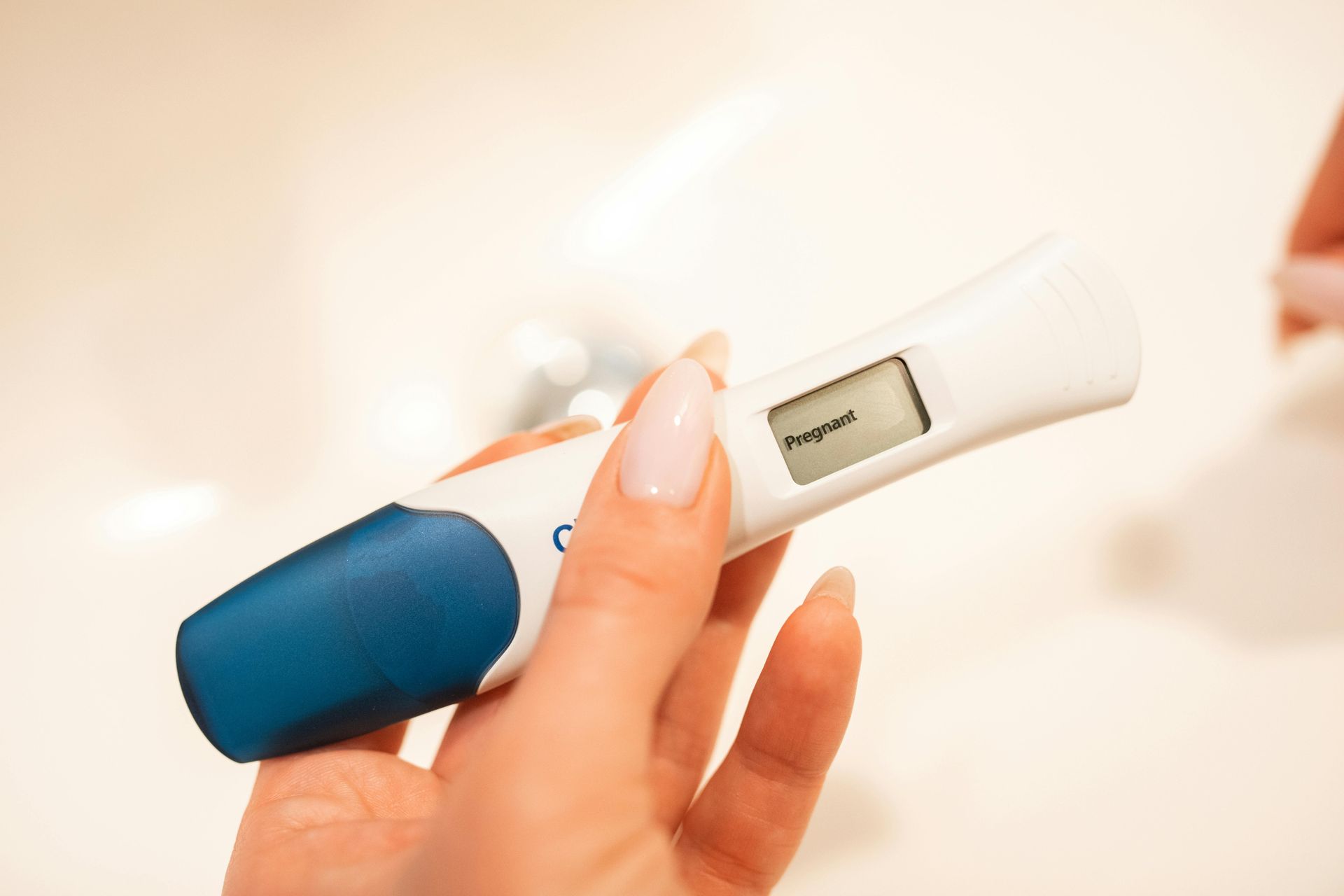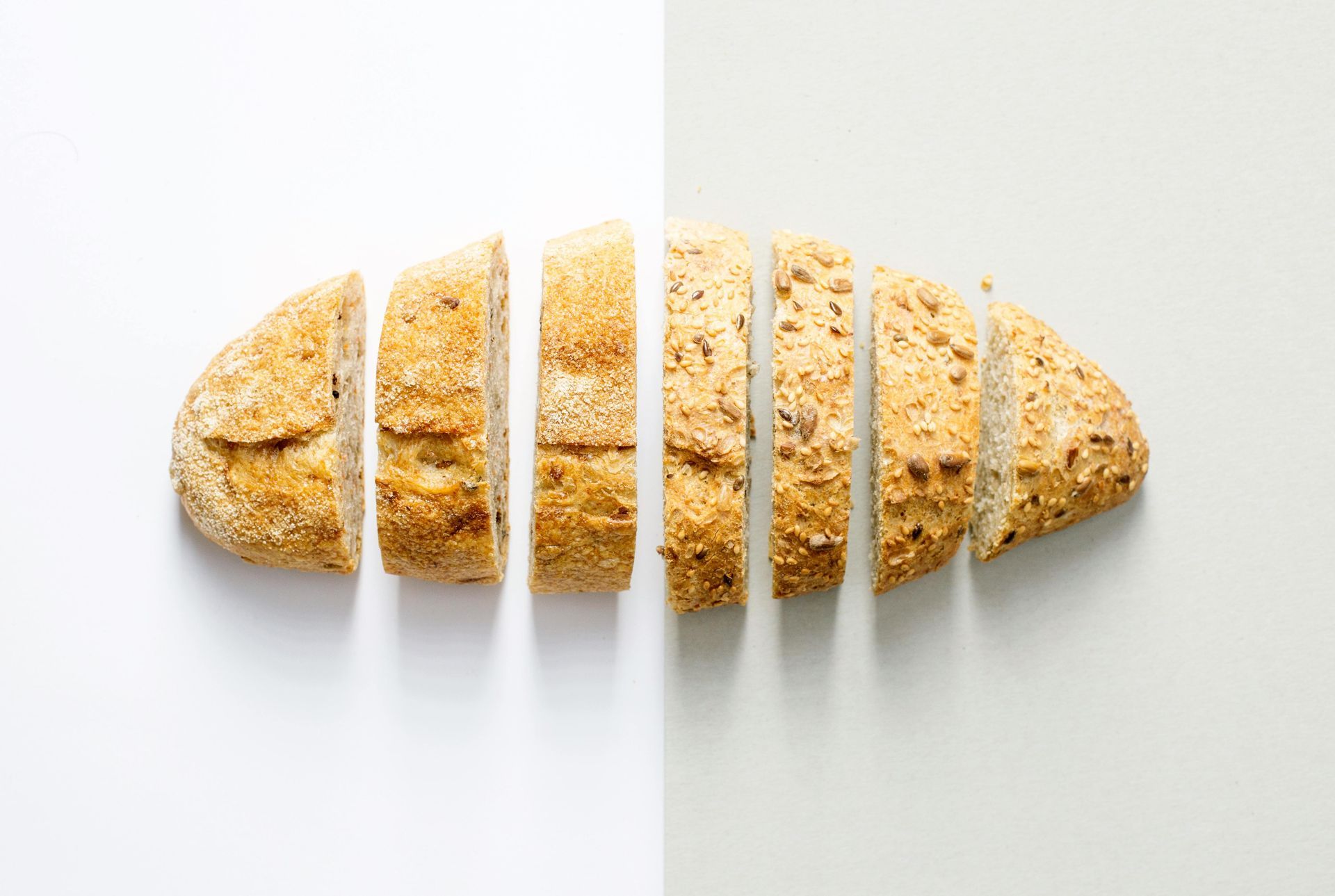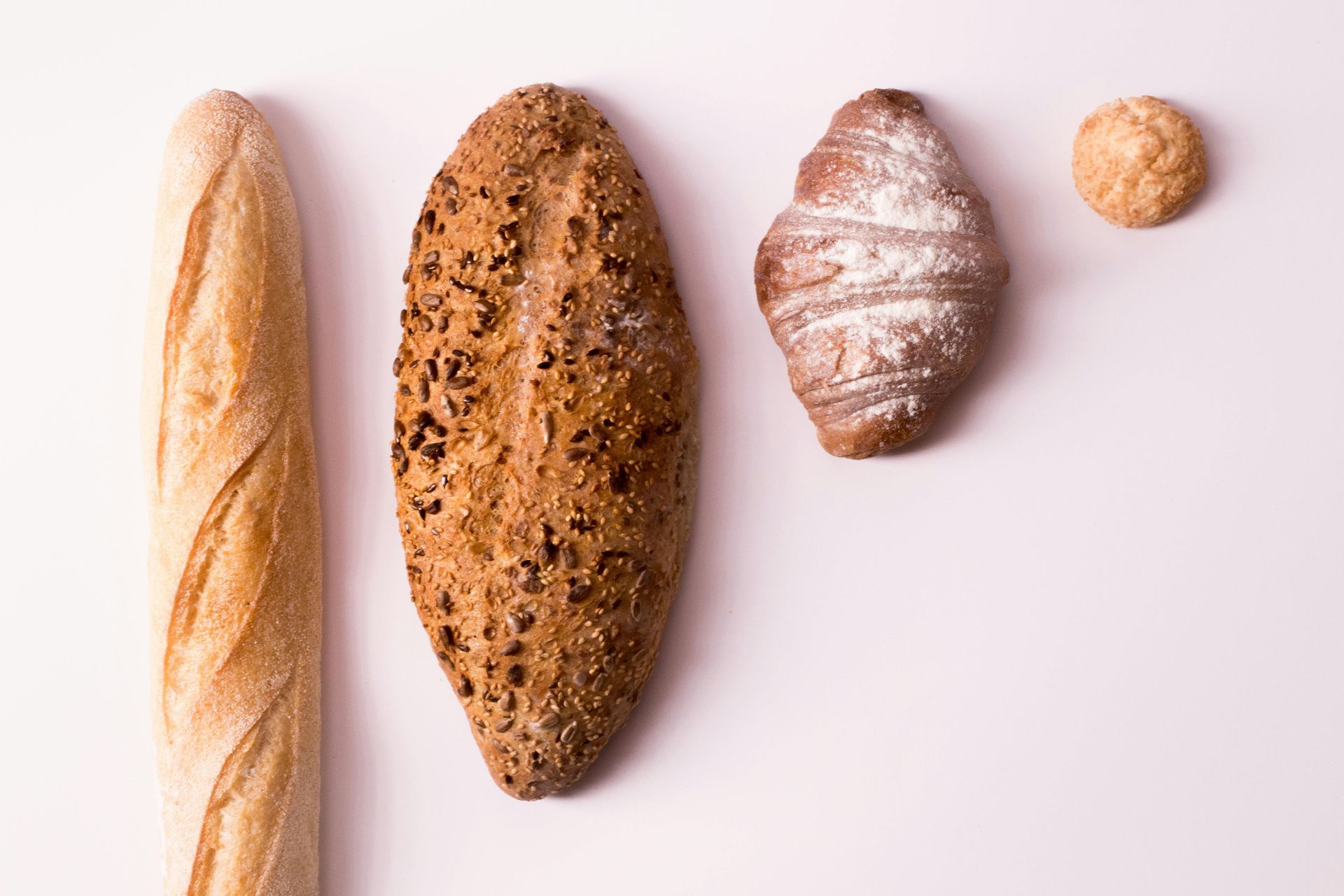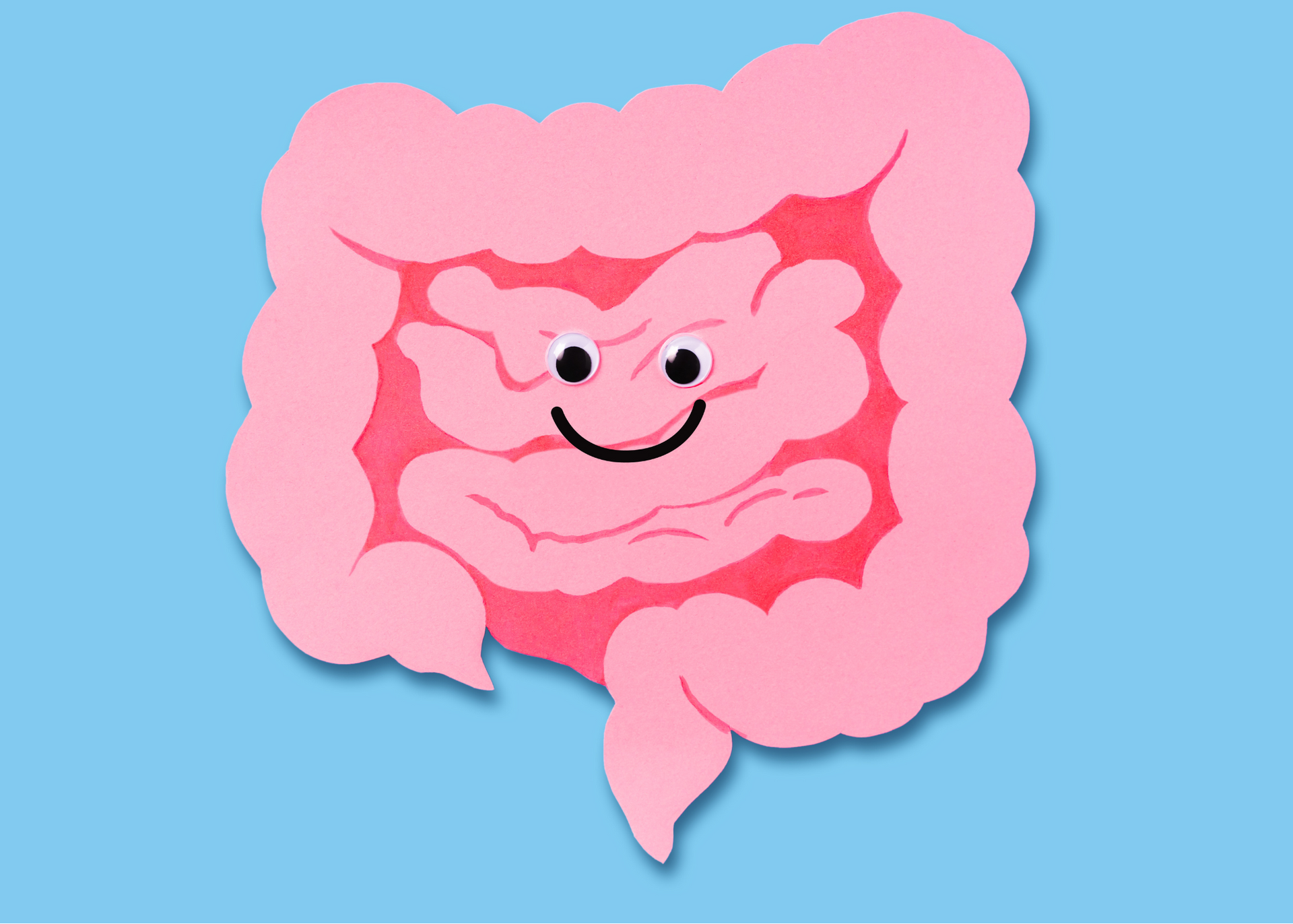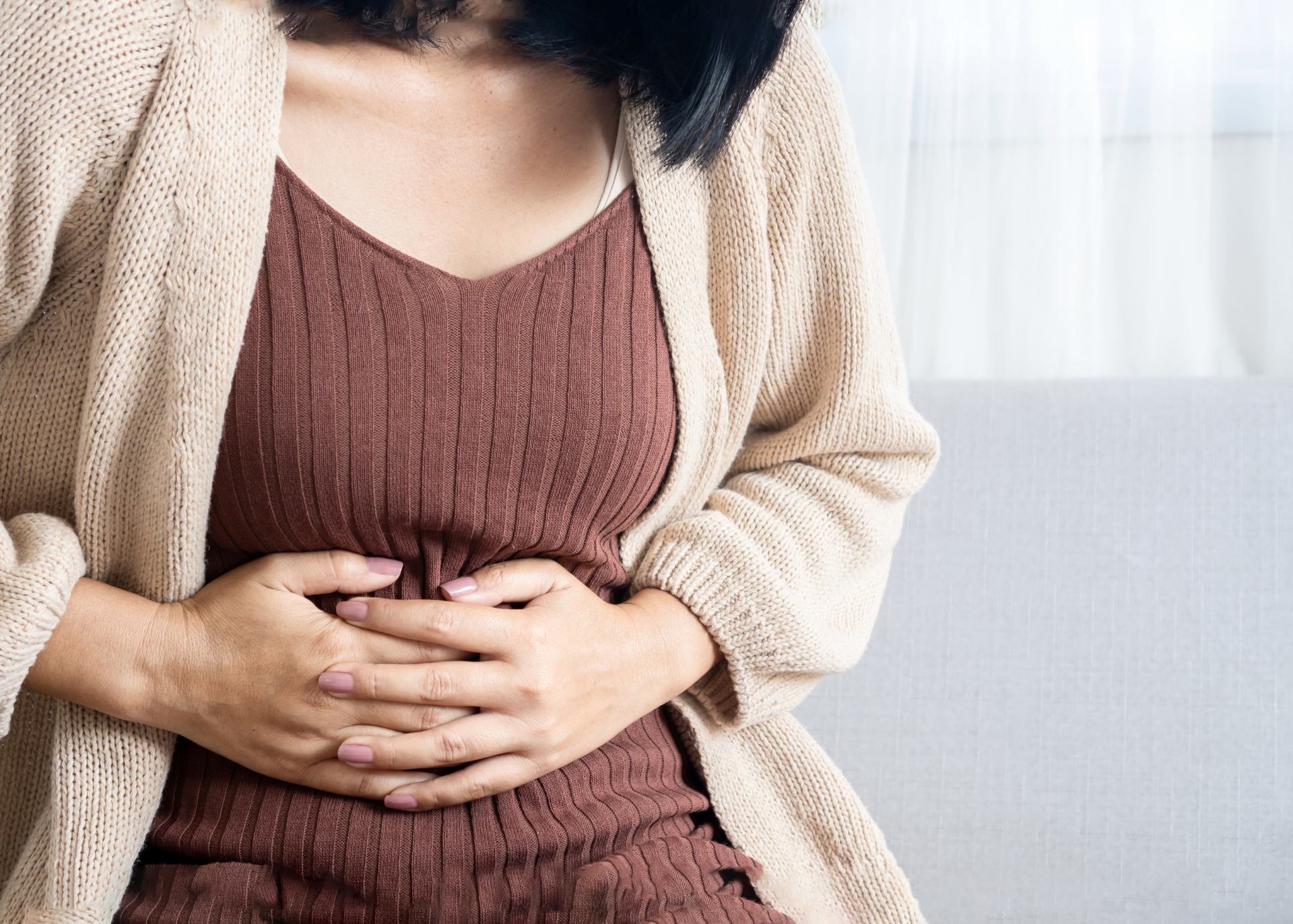The 15 Best Herbs for Hormone Balance
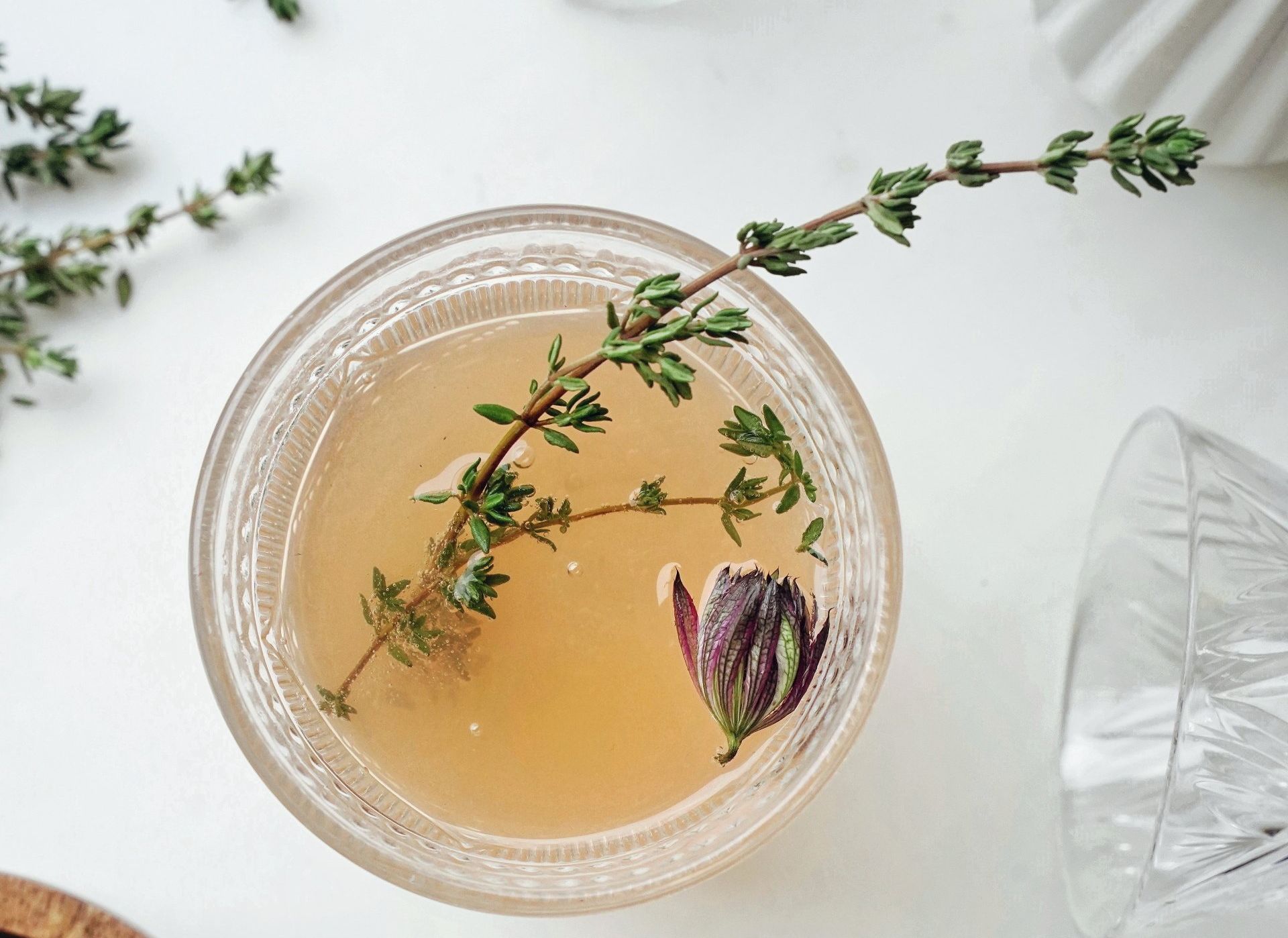
Hormonal imbalances can affect everything from your mood to your metabolism.
Herbs have been used for centuries to support hormonal health, and modern science is beginning to back up these traditional practices with research.
Whether in whole, tea, or capsule form, herbs can be a way to enhance a
hormone-balancing diet and make your holistic approach to hormone balance even more effective.
As a
Functional Medicine Dietitian and women’s health expert, I’ve dedicated my career to helping women navigate and
overcome hormonal imbalances using natural methods.
In this article, I'll share my top 15 herbs for hormone balance and share the scientific evidence behind their effectiveness.
You’ll learn about:
- The role of herbs for balancing hormones
- Key considerations when using herbs
- How to shop for an herbal supplement
- 15 best herbs for hormone balance
The Role of Herbs in Supporting Hormone Health
Herbs have a long history of use in traditional medicine systems around the world, from Ayurveda to Traditional Chinese Medicine.
These natural powerhouses can help modulate hormone levels, support glandular health, and alleviate symptoms of hormonal imbalance.
Each herb has unique properties and effects.
Herbs like ashwagandha, for example, can support adrenal function and help manage stress, while others like spearmint have been shown to reduce excessive androgens and improve symptoms of PCOS.
Empowering women with knowledge is one of my favorite parts of my job. My hope is that by the end of this article you’ll have a good understanding of how to safely and effectively incorporate herbs into your hormone balancing journey.
And if you're looking for one-on-one guidance and personalized supplement prescriptions instead, book a discovery call
here.

Considerations When Using Herbs to Regulate Hormones
Before incorporating herbs into your hormone balancing routine, doing thorough research is important.
Always consult with your medical team, especially if you have an existing medical condition or medication you’ve been prescribed.
And keep in mind, many herbs are unsafe during pregnancy and breastfeeding.
I recommend cross-referencing potential herb-drug interactions using resources like the National Library of Medicine's MedlinePlus Database, a free online tool.
It’s also important to recognize that blindly supplementing with herbs can create more harm than good.
Some herbs have specific actions on hormone levels. For instance, licorice can raise cortisol levels and spearmint can lower testosterone.
If you haven’t had recent blood work to assess your hormone levels, I recommend avoiding these types of herbs.
For example - If you take licorice root in hopes of improving your adrenal health but your cortisol is already high, this can actually create more adrenal issues and more health issues overall.
Other herbs for balancing hormones, like ashwagandha, lemon balm, and ginger, are generally safe to begin without recent blood work results.
No matter what health issues you’re trying to address with herbs, I recommend working with a knowledgeable Functional Medicine practitioner who has an in-depth understanding of the human body and extensive experience.
I’ve worked with so many women who’ve tried herb after herb, supplement after supplement, with no success.
Instead of wasting precious time, energy, and money trying to fix yourself, work with
an expert who can help you identify exactly which hormone balancing herbs would be helpful for your body, at what dosage, and for what length of time.
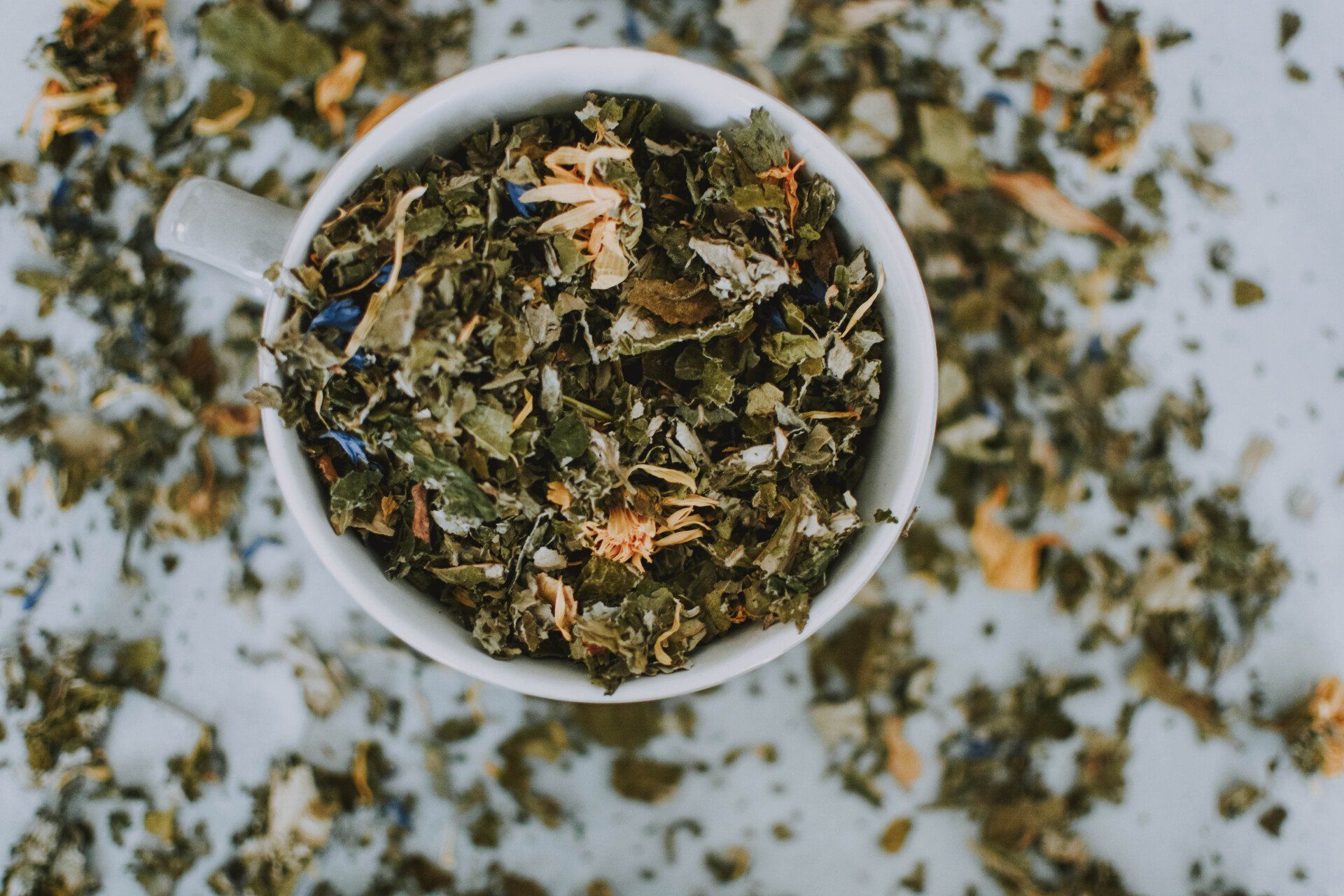
How to Choose High-Quality Herbal Supplements
When it comes to herbal supplements, quality matters.
Not all supplements are created equal, and choosing high-quality products is crucial for both safety and effectiveness.
Contamination is a serious problem with many herbal supplement products.
Supplements aren’t well regulated - even a legit looking herbal supplement could be full of heavy metals, bacteria, and other nasty chemicals.
Reputable companies and manufacturers of herbal supplements take additional steps to ensure their products are as safe and effective as possible.
Before you take an herbal supplement, look for:
1. Approval by a Skilled Medical Provider: Ordering supplements through a knowledgeable healthcare provider, like a Dietitian or other licensed healthcare provider, ensures that you are getting high-quality products. As part of my Restore Program, I provide women with access to my online supplement store where they can purchase safe, effective herbs to balance their hormones.
2. Third-Party Tested: Check to make sure the supplement has been tested by independent laboratories for purity and potency. This certification guarantees that the product contains what it claims, without harmful contaminants. Many companies have been willing to send me their third-party test results if they weren’t already accessible through their website - all I had to do was email them and ask!
3. GMP and USP Verified: Look for the Good Manufacturing Practices (GMP) and U.S. Pharmacopeia (USP) verified marks on herbal supplement product labels. These certifications ensure that the supplements are produced in a quality-controlled environment.
Avoid purchasing herbs on Amazon, where fake reviews are rampant and counterfeit products are a huge concern.
Always opt for trusted providers or retailers to ensure product authenticity and quality.
By prioritizing these considerations, you can confidently choose high-quality herbal supplements to support your hormone health.
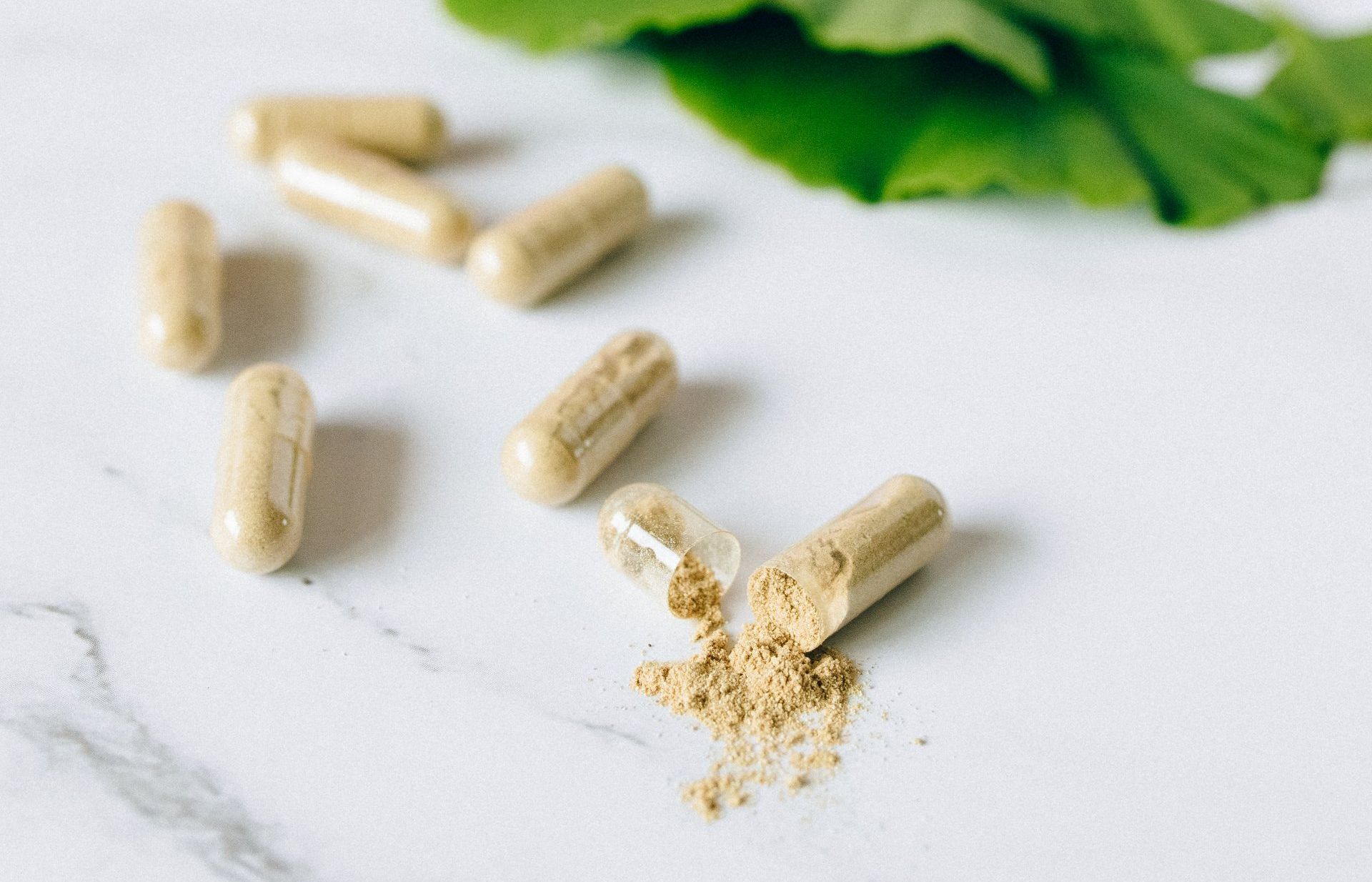
Top 15 Herbs for Balanced Hormones
Although there are many additional herbal remedies that support hormone balance, I’ve curated a list of the top 15 herbs (and the form I typically use) I frequently recommend and successfully use in my Functional Medicine nutrition practice.
1. Ashwagandha (capsule form)
Used in traditional medicine for thousands of years, this herb effectively reduces high Cortisol levels, lowering stress. It has also been found to treat perimenopausal symptoms such as hot flashes, sleep issues, and vaginal dryness.
2. Lemon Balm (tea form)
Another stress reducing herb, Lemon Balm can reduce Cortisol levels and anxiety. Research also shows this herb can improve mood and promote a feeling of calmness. This may be due to an increase in dopamine, the ‘feel good’ hormone.
3. Valerian (tea or capsule form)
A versatile herb, Valerian is helpful for reducing anxiety, hot flashes in menopausal and postmenopausal women, premenstrual symptoms, as well as improving sleep issues. It also acts as a phytoestrogen, balancing estrogen levels in the body.
4. Vitex (capsule form)
Vitex can be used to promote fertility, improve PMS and menopausal symptoms, and help women get their period back, if prolactin levels are high. Vitex lowers prolactin and raises dopamine levels, which promotes ovulation and raises progesterone levels.
5. Black Cohosh (capsule form)
Safe and effective for symptoms related to low estrogen, black cohosh can alleviate hot flashes, night sweats and mood swings in perimenopausal and postmenopausal women. This herb has been used as a natural alternative to hormone replacement therapy in adult women, and the current research does not support an association between black cohosh and an increased risk of breast cancer.
6. Dandelion (tea form)
This herb is a pancreas-protective and liver-supporting plant that helps prevent and alleviate estrogen dominance and aids in estrogen metabolism. I’ve been recommending DandyBlend for years and recommend it as an easy way to incorporate dandelion into your diet. It’s similar to instant coffee (but caffeine-free) - just mix with water and add your milk/creamer of choice. I also prescribe some liver support supplement blends that contain dandelion.
7. Turmeric (fresh food form or capsule form)
Curcumin, a compound in turmeric, can help
balance hormones and manage conditions like endometriosis and PCOS. It reduces inflammation and can correct hormone imbalances like LH levels or low estrogen, progesterone, and/or FSH in women with PCOS.
8. Ginger (fresh food, capsule form, or tea)
Studies suggest that the flavonoids and phytoestrogen compounds in ginger can help balance estrogen to progesterone ratio and are also useful in managing PCOS. In my article on the best teas for hormone balance, I explain why starting your day with a cup of ginger tea can help support hormone balance, digestion, and more.
9. Parsley (fresh food form)
This herb has a significant estrogenic effect in the body, supporting regular menstrual cycles and fertility. Parsley can also support liver health and boost antioxidant levels.
10. Rosemary (fresh food form)
A versatile cooking herb, this is another powerhouse plant with many health benefits and medicinal properties. Rosemary can support fertility, has a strong antioxidant activity, and enhances the stability of oils when used in cooking or grilling.
11. Shatavari (capsule form)
Known as the “Queen of all herbs,” Shatavari is an important component of Ayurveda medicine. This herb has phytoestrogen properties and has been used to treat female reproductive system issues, regulates ovarian cycles, and acts as an aphrodisiac.
12. Licorice (capsule form)
Used for centuries, Licorice root has estrogen-like properties that may relieve menopausal symptoms and improve infertility. Before taking this herb, it's recommended to test your cortisol levels due to its ability to enhance the action of cortisol.
13. Spearmint (tea)
Studies show spearmint, a tasty and refreshing herb, can improve cycle regularity. It has impressive positive effects on PCOS because of its ability to promote healthy follicle stimulating hormone and lutein hormone levels, while also lowering testosterone levels. Spearmint tea is an easy way to incorporate this hormone-balancing herb.
14. Evening primrose (capsule form)
Another herbal phytoestrogen, evening primrose oil can reduce menopausal symptoms such as hot flashes and also counteracts hormonal changes during menopause. Evening primrose can be helpful before menopause too - the linoleic acid in evening primrose oil boosts healthy prostaglandin levels and improves PMS symptoms.
15. Chamomile (tea form)
Chamomile tea is known for its calming, sleep-inducing properties, but it also effectively lowers testosterone in women with PCOS and can be used to reduce menstrual pain and bleeding.
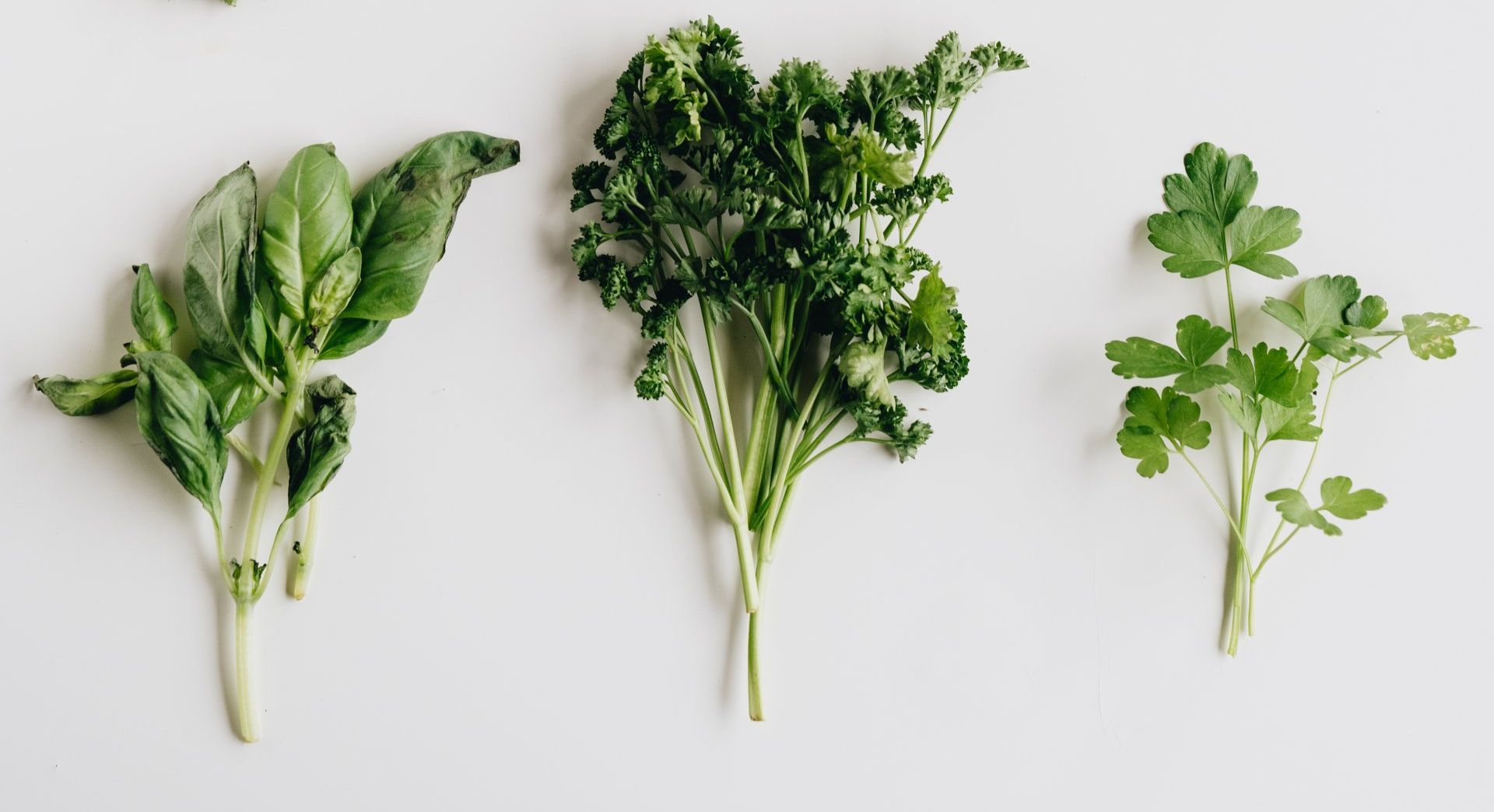
Frequently Asked Questions
Now that we've explored the top herbs for hormone balance, let's address some common questions I get about their usage and effectiveness.
If I’m just starting out, what are the best herbs that balance hormones?
It depends! Starting with generally safe and well-researched herbs like ashwagandha, lemon balm, and ginger can be a great introduction to using herbs for hormonal balance. These herbs offer broad benefits and can support overall hormonal health without the need for extensive testing. The best way to know what to start with is by working with a
qualified provider who understands your health history, your current symptoms and habits, and your goals.
How long does it take to see results from using herbal remedies to balance hormones?
The time frame for seeing results from herbal supplements can vary depending on your unique state of health and the specific herb used. It generally takes anywhere from a few weeks to a few months to notice significant changes. Consistency is key, and it's important to follow the recommended dosage and usage guidelines.
Can I take multiple herbs at the same time?
Yes, you can take multiple herbs simultaneously, but it's important to understand how they interact with each other as well as with any medications you might be taking. Before starting multiple herbs at once, consult with a
healthcare provider to make sure you’re taking safe and effective combinations.
Are there any side effects from taking herbal supplements?
While many herbs are safe when used correctly, some may cause side effects or interact with medications. It's important to consult with a
healthcare provider before starting any new supplement, especially if you have existing health conditions or are taking other medications. It’s also critical to consult your healthcare provider about herbs if you are pregnant or breastfeeding.
Next Steps for Balanced Hormones
Balancing hormones with the aid of herbs can greatly impact your health and well-being. To start, integrate some of the evidence-based herbs we've discussed into your daily routine.
Remember to choose high-quality supplements by looking for third-party testing, GMP and USP verification, and reputable brands.
Always consult with your healthcare provider before starting any new herbal regimen, especially if you have existing health conditions or are on medication.
If you want personalized guidance and a comprehensive approach to hormonal balance, book a discovery call
here.
Continue Reading
